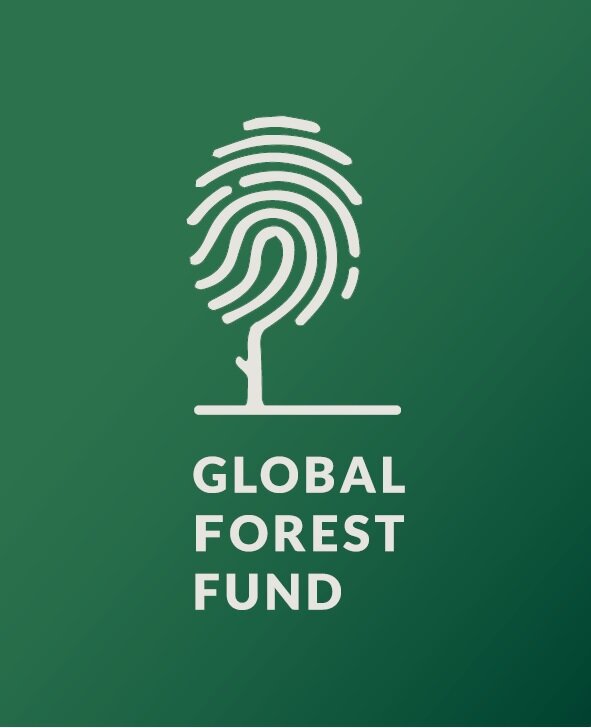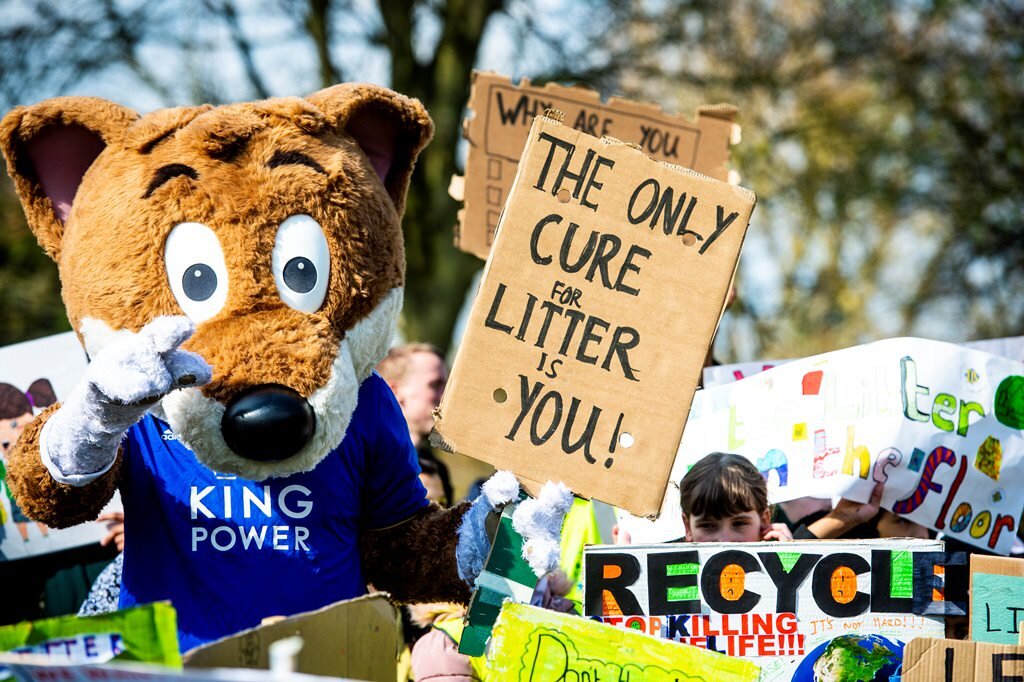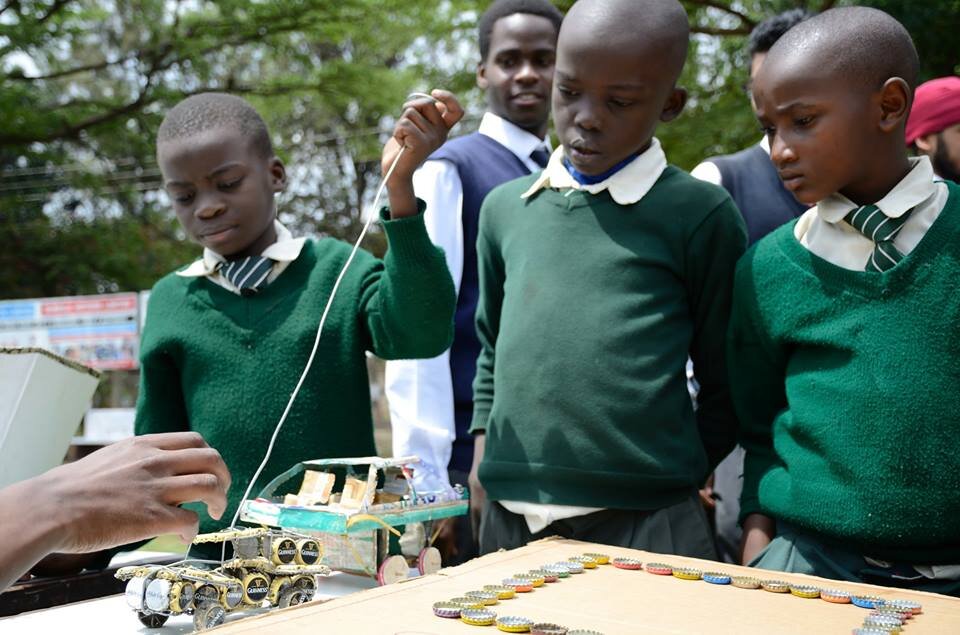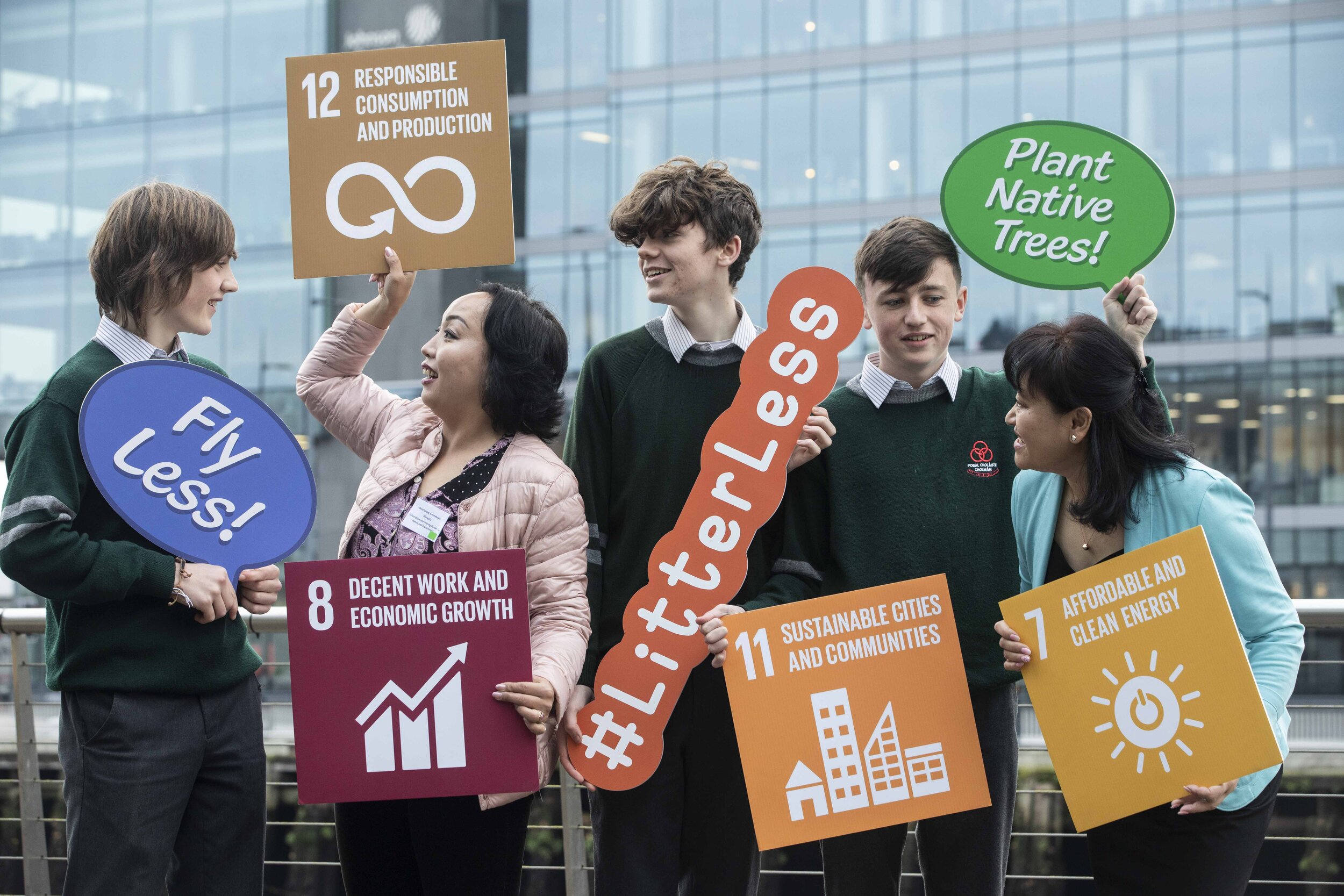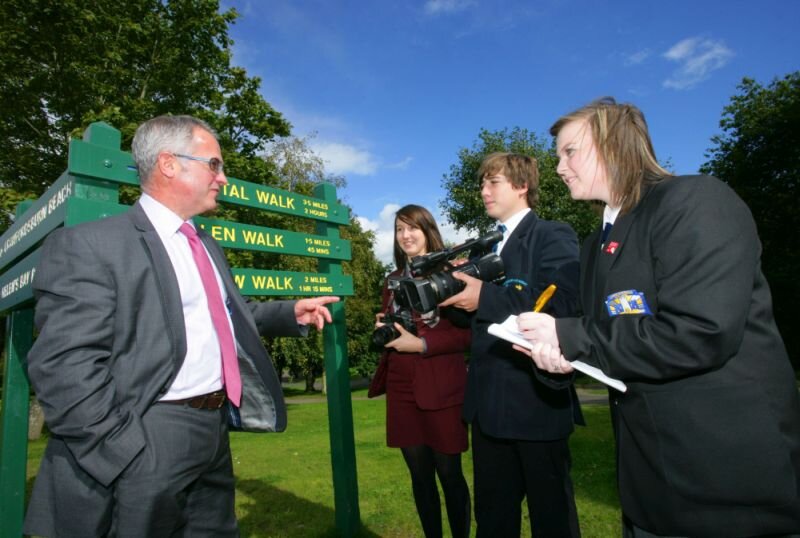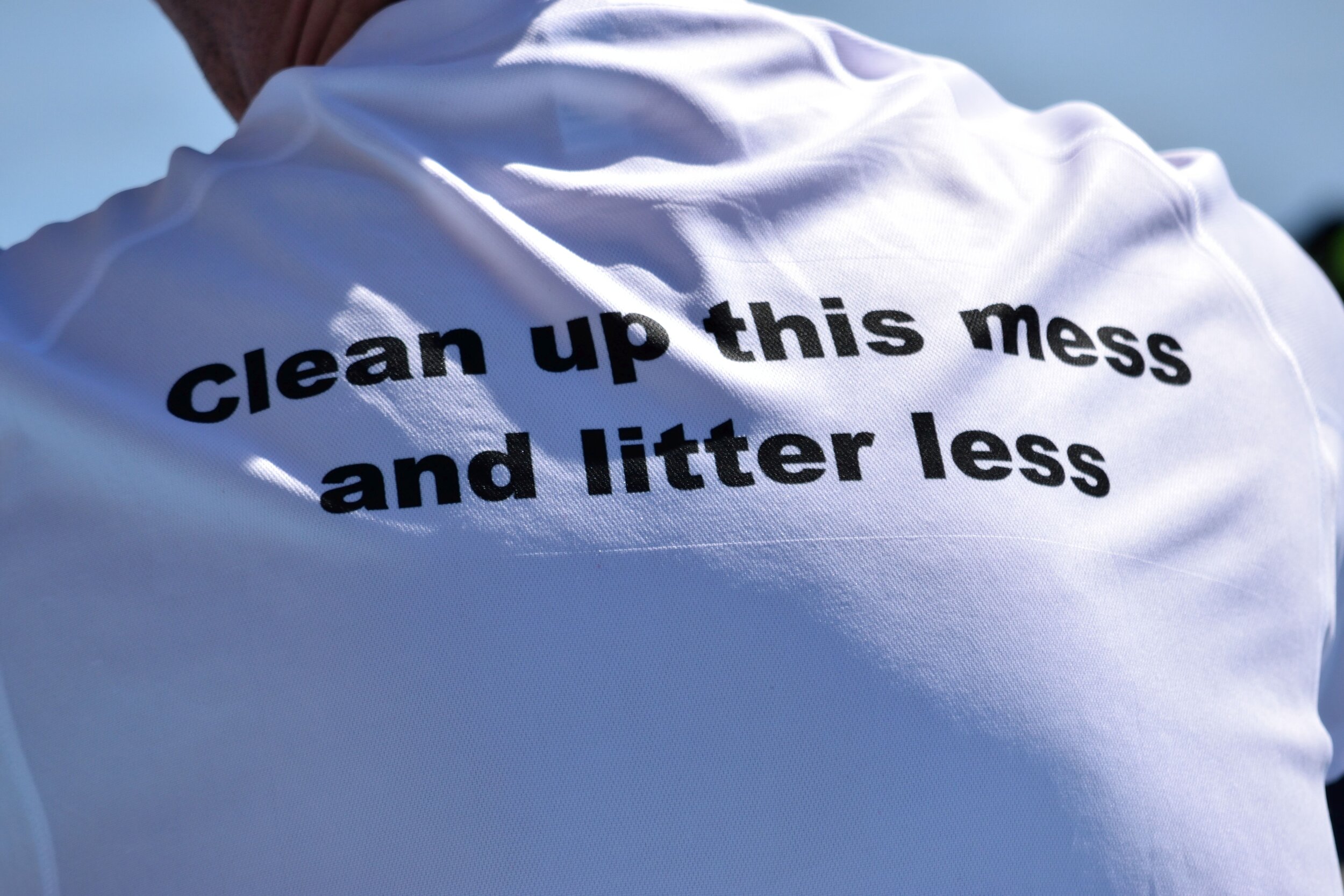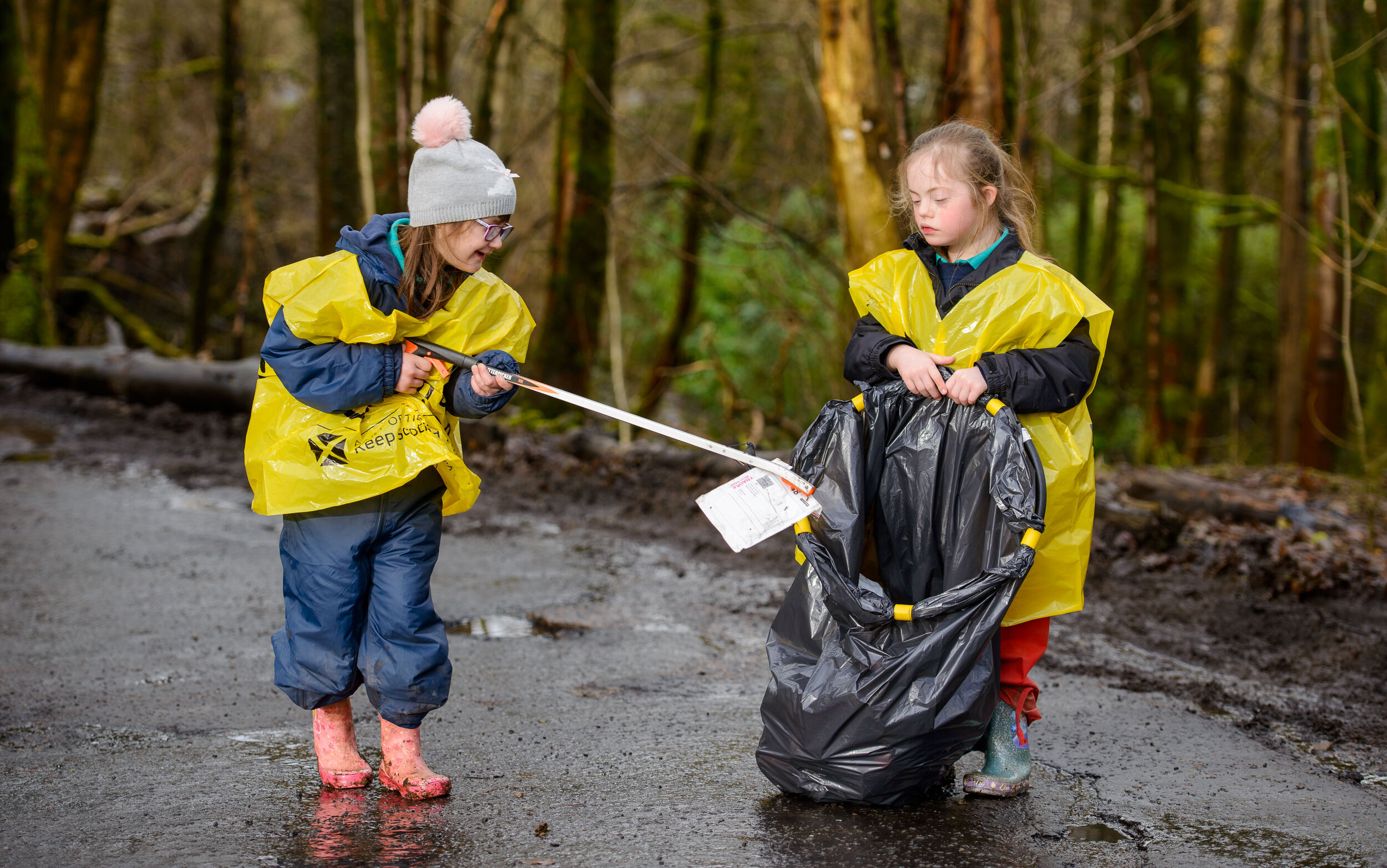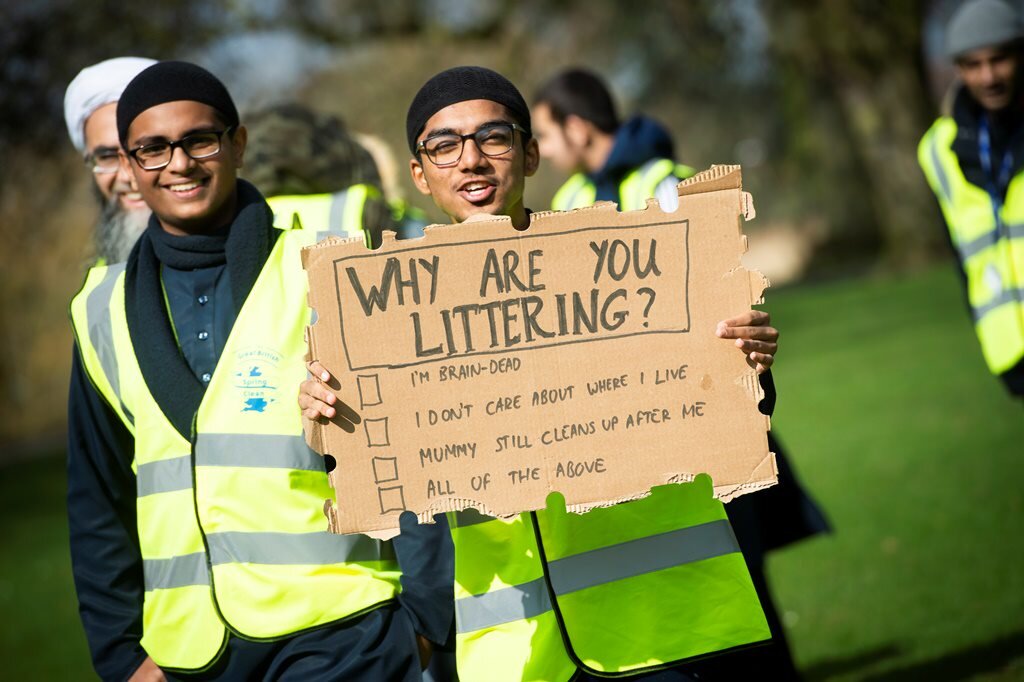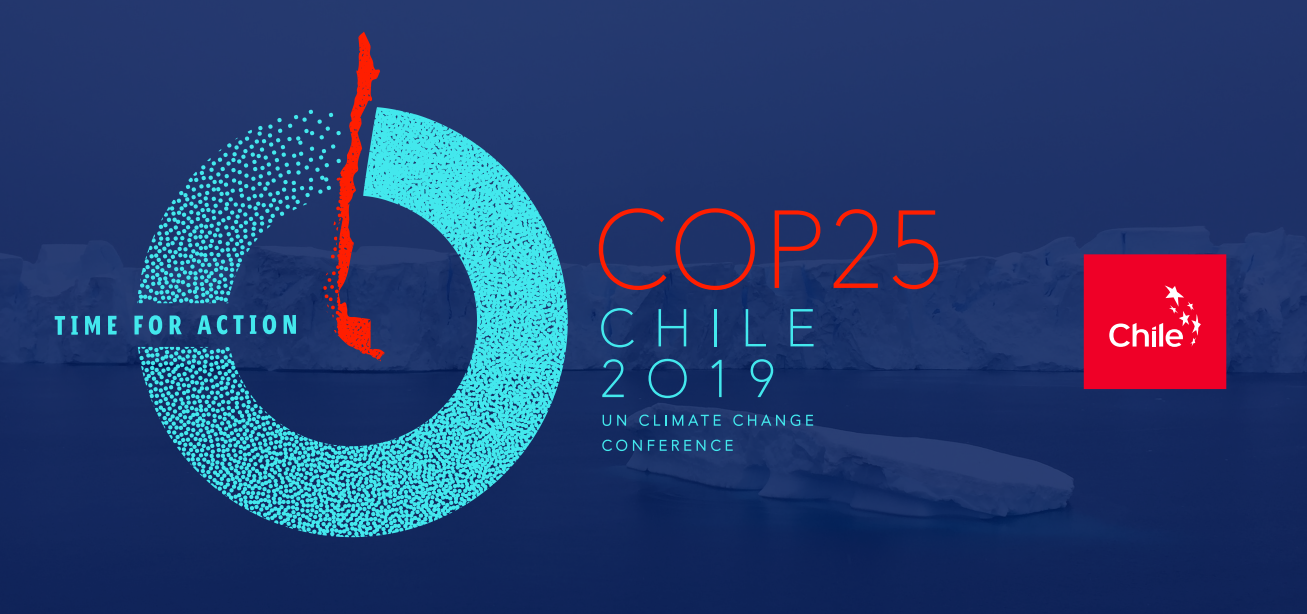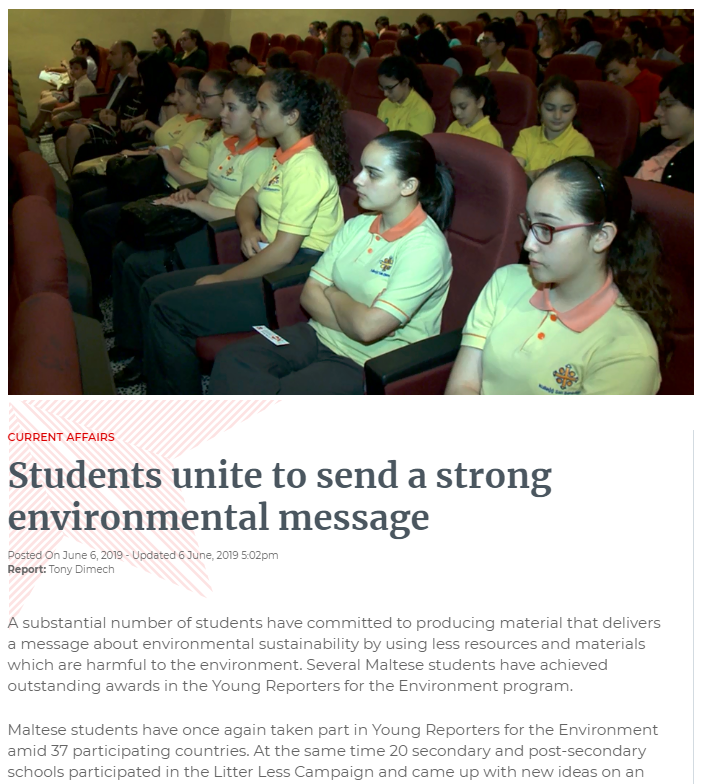Join us Friday December 6th at the COP 25 in Madrid! We are co-sponsoring an event with Earth Day Network to make environmental education mandatory in all classrooms at all education levels and for schools to promote a sustainable lifestyle all over the world.
Global Forest Fund - new calculator and platform launch
After nearly a decade of compensating for our organisation’s own emissions, we have been privileged to have received a donation to upgrade this internal tool to a cutting-edge platform. Today FEE launches this new Global Forest Fund calculator and platform which allows travellers to calculate their carbon emission across a range of transport options. Open to the public and other organisations interested in compensating for CO2 emissions related to travel, the Global Forest Fund is trustworthy, transparent and makes a real and lasting impact.
We strongly believe that education is an essential part of the process and will contribute greatly to the future impact of this tool. Our methodology focuses on engaging youth in schools with educational resources delivered over the course of the school year, with these learning outcomes being reinforced around the focal point of a hands-on tree planting event involving the local community.
Project Leader Barry McGonigal
Project applications are awarded based on striking a balance between planting as many trees as possible and education as many children as we can. Working with our members means drawing on decades of collaboration and expertise to deliver the maximum for the funds we disseminate with 90% of the income going directly to the projects and the remainder used for administration at FEE.
We are currently establishing a jury including representatives from outside of our organisation whose task it will be to select the projects to be awarded according to a strict set of criteria. Transparency and integrity are as key to the success of our fund as they are to our organisation as a whole: with nearly forty years of running global programmes the Foundation for Environmental Education has become a leader in the public eye, representing quality and environmental awareness both in the tourism industry (Blue Flag and Green Key) and formal education (Eco-Schools, Learning about Forests and Young Reporters for the Environment).
New Eco-Schools Children for Children Campaign to Support The Bahamas
It is estimated that 70,000 people, including more than 18,000 children and teachers, have been severely affected by the recent Hurricane Dorian in The Bahamas. Twelve Eco-Schools on two islands, Grand Bahama and Abaco, suffered extensive damage or were destroyed.
To support children from our twelve affected Eco-Schools and to raise educational awareness on the increasing vulnerabilities to natural disasters from climate change, the Foundation for Environmental Education (FEE) has teamed up with our member in The Bahamas, Bahamas Reef Environmental Education Foundation (BREEF), to launch the Children for Children campaign.
Individual Eco-Schools from our global network of 51,000 schools in 67 countries will be able to participate in this global campaign, which will help educate students on climate change risk reduction and resilience. Each of the actions taken by these schools will also include a fundraising component so they can make donations to help the recovery efforts of affected Eco-Schools in The Bahamas. Donations from outside of the Eco-Schools network are also welcome.
“The overall goal is to raise educational awareness on the impacts of climate change and the increasing vulnerabilities to disasters, and at the same time help the schools in The Bahamas buy new equipment and educational materials that will allow students to return to normality as soon as possible,” says FEE’s CEO, Daniel Schaffer.
Since 1981 FEE, through its Eco-Schools, Young Reporters for the Environment, and Learning about Forests programmes, has been educating children, youth and adults to increase awareness and action on creating a more sustainable world. Today, with increasing vulnerabilities to natural disasters from climate change, FEE is in a position to mobilise support for rehabilitation and climate resilience, particularly within the educational infrastructure.
“Though born out of adversity, the Children for Children campaign unites the global Eco-Schools network with the children of The Bahamas not only to show that they care, but to lend their financial support to the ongoing recovery of children affected by Hurricane Dorian. As a low-lying archipelago, The Bahamas is one of the most vulnerable countries in the world to the adverse effects of climate change. Nevertheless, climate change affects every one of us on earth and it is up to us all to take action,” says Casuarina McKinney-Lambert, Executive Director of BREEF.
Next summer the campaign will follow up with the progress of how the recovery efforts for the children and schools in The Bahamas is progressing and a final publication on the ‘Climate change risk reduction and resilience education’ will be published.
To find out more about how to donate, school fundraising activities, educational resources and how an Eco-School can register for this campaign, please visit: www.ecoschools.global/childrenforchildren
Eco-Schools Petition to 10 Downing Street
Allison Ogden-Newton, Lee Wray-Davies and Suzy Brain England outside 10 Downing Street
Today Eco-Schools England presented their petition to No 10 Downing Street asking for all schools in England to become Eco-Schools and to receive the support they need to achieve Green Flag success.
‘We believe that every school in England, from Early Years to higher education, should feel able to benefit from being enrolled on the Eco-Schools programme. Every school should be actively supported to achieve their Green Flag and overcome any anxiety about future climate through a programme that delivers the learning that young people need and personal strategies they can employ to take action and make a difference, at school, at home and in their future working lives’
To follow the story on social media please use #AllSchoolsEcoSchools
Increased student awareness of Climate Change through Green STEM initiative
Through the Alcoa W5 Programme supported by Alcoa Foundation and delivered through the Eco-Schools programme, student climate change awareness levels have increased by 30% and participating students now feel confident about their knowledge on the issue.
Green STEM – looking at the Science, Technology, Engineering and Math disciplines through an environmental lens – provides students with opportunities to work with real-world sustainability issues where their learnings help solve real problems by thinking critically and working together.
In the programme’s third year, students from twenty-five schools are participating in hands-on actions around the themes of Waste, Water, Energy (Watts), Climate Change (Warming) and Biodiversity (Wildlife). Eco-Schools national teams of the National Wildlife Federation in the USA, FEE Norway in Norway, and Keep Australia Beautiful in Australia provide teacher training, develop resources, and support Alcoa volunteer opportunities.
“With Alcoa Foundation’s support through this project we have been able to provide a positive action-based approach that has resulted in incredible student achievements at the community level – from increasing schools’ handprint to addressing local government about recycling management on equal footing. This project provides experiences that empower young people with skills to be active citizens who can better address the most pressing issues of our time,” says FEE CEO Daniel Schaffer.
The Alcoa W5 project has led to increased biodiversity on the school grounds, energy efficiency and energy-saving initiatives, improved waste management systems and increased engagement in school communities and local governments in sustainability initiatives. Impact assessment from the last cycle of the project in 2017-2018, highlights that there has been a 58% increase of participating teachers having a better understanding of Green STEM by the end of the project cycle, which allows them to start or consistently incorporate Green STEM learning opportunities in the classroom – a remarkable achievement of the project.
“Eco-Schools allows students in multiple Alcoa communities around the world to learn about the important issues surrounding our environment through a unique STEM framework,” says Alice Truscott, Senior Program Officer for Alcoa Foundation. “We truly believe the future of sustainability relies on the education of tomorrow’s leaders, and that is one of the many reasons why we invest in this important programme.”
Learn more about the Alcoa W5 project at https://www.ecoschools.global/alcoaw5
FEE Response to the Climate Crisis
The latest IPCC Special Report on the Ocean and Cryosphere in a Changing Climate clearly states our fragile Earth is now in perilous danger and that we humans are a major contributing factor. The clear consensus is we have less than a decade to wholeheartedly address the climate crisis to stay within the 1.5 degree temperature rise.
Since 1981, the Foundation for Environmental Education has been working on a solution-based approach for creating a more sustainable world. Through our five programmes, we have empowered people to take meaningful and purposeful action to look after our valuable finite natural resources by enhancing global environmental education.
FEE is galvanised into action by this latest IPCC report and we are committed to sharing our knowledge and experience, so we can play our part in offering positive actions and solutions to the current climate crisis. We can, and will do more, and will now sharpen our own focus on three key themes: climate change, loss of biodiversity and pollution.
“There is a pressing need to prioritise FEE’s limited resources to focus on these three main themes that are intrinsically linked. We have an important role to play in addressing the urgency of the situation and to commit to a strategy and approach that puts these critical issues at the heart of our programmes and our organisation,” says FEE President Lesley Jones.
For the last thirty eight years, FEE has been educating millions of people around the world to become leaders of sustainability and positive change. Now, together with the right knowledge and know-how, we can increase our contribution and push even harder as positive agents of change.
Our educational programmes, Eco-Schools, LEAF and Young Reporters for the Environment utilise a solution-based approach for empowering young children, youth and young adults to take meaningful action to protect our planet. And, our Green Key and Blue Flag initiatives promote sustainable business practices within the tourism industry.
Lastly FEE’s Global Forest Fund, to be re-launched in its upgraded form this November, will be a powerful tool for all to compensate travel-related emissions through our educational projects focused on school and community tree planting, providing further positive solutions to the climate crisis we are facing.
Together we can all make a positive change on a global scale.
Litter Less Campaign: The longest-running school campaign on litter continues
PRESS RELEASE
Contact: Gosia Luszczek, International YRE Director
Foundation for Environmental Education
E: gosia@fee.global
Over 3 million students from more than 5000 schools across the world have participated in the Litter Less Campaign the past 8 years. The campaign has helped not only students, but also their teachers, parents, and local communities address the issue of litter and waste.
The Litter Less Campaign, which was launched in 2011, has just entered its fourth phase and will be implemented in 15 countries until 2021. The campaign is a joint initiative between Foundation for Environmental Education (FEE) and Mars Wrigley Foundation which educates children and youth on the issue of litter and gives them the opportunity to engage their local communities in awareness raising activities.
“Providing students an opportunity to learn about the challenges of litter and waste in their community and empowering them to become leaders through the development of meaningful solutions drives sustainable, positive behavior change. The Mars Wrigley Foundation is proud to have supported millions of students around the world through the Litter Less Campaign,” says Anne Vela-Wagner, Executive Director of the Mars Wrigley Foundation.
Through the Eco-Schools and Young Reporters for the Environment programmes, students will carry out litter action plans and media campaigns which aim to tackle specific litter and waste issues. These issues will be carefully selected by the schools together with their National Operators in order to achieve the biggest and most relevant impact in their local communities.
“FEE is privileged for the funding and cooperation it has been granted by the Mars Wrigley Foundation since 2011. The funding of these two extra years are a testament to the impact we have had with the campaign to date. Litter is a form of a pollution that continues to increase as a serious global threat. The situation our oceans are facing due to plastic and micro plastic pollution are a sad example of this. Hence we believe this fourth phase is essential for our on-going efforts in educating and changing the behaviour of children, youth and adults around the world,” says Daniel Schaffer, CEO of Foundation for Environmental Education.
A campaign with a clear impact
Based on research conducted the past two years, the Litter Less Campaign has a clear positive impact on students’ knowledge, attitude and opinion leadership with respect to litter and waste management. The data shows that students who participate in the campaign know more about waste management, conserve more resources and are less likely to litter compared with students who do not participate in the campaign.
“The campaign highlight is always the enthusiasm of the children to make a difference and be given a platform to use their pupil voice concerning issues that affect them. Because of the raised awareness of Litter and its impacts around the world, especially to our oceans and wildlife, pupils have had a real purpose in their actions and messages to their school and community,” says Julie Giles, National Operator, Wales.
About the Foundation for Environmental Education
Foundation for Environmental Education (FEE) is the world's largest environmental education organisation with members in 77 countries. Through five ground-breaking programmes, FEE empowers people to take meaningful and purposeful action to help create a more sustainable world.
About the Mars Wrigley Foundation
The Mars Wrigley Foundation partners with organizations around the world to help people and communities flourish. Founded in 1987, the Foundation works to provide oral health education and care, improve lives in mint- and cocoa-growing regions, prevent litter and waste, and create vibrant communities.
Countries implementing the Litter Less Campaign 2019-2021
Australia, Brazil, China, England, France, India, Ireland, Kenya, Malta, New Zealand, Northern Ireland, Russia, Scotland, Spain and Wales
Press Release - YRE International Competition 2020
Do you want to raise awareness of environmental issues taking place in your neighbourhood? Are you able to inspire people to take positive action? Do you see yourself as part of the global environmental movement?
Then join the International Young Reporters for the Environment (YRE) Competition 2020 by submitting an article, photo, or video that highlights an environmental issue close to your heart. The winning entries will be published internationally on Medium and on the websites of Climate Tracker and YRE!
FEE's Nicole Andreou recognised as an Environmental Educator Leader
We are excited to announce that the North American Association for Environmental Education (NAAEE) has recognised Nicole Andreou, our International Eco-Schools Coordinator as an EE 30 Under 30 for her work with the Foundation for Environmental Education. The award recognises young leaders using Environmental Education to build sustainable communities, and so we are thrilled that Nicole has now joined this inspiring community.
“The fact that children aged three or ten, elementary school or university students, all take the lead every single day to make an impact has been fascinating to observe and certainly gives me a lot of energy”
EE 30 Under 30 was created in 2016 to recognise exemplary young professionals who are harnessing the power of education to create a more sustainable future. The Class of 2019 contributes to this network of leaders by addressing social and environmental issues ranging from mobilising students for climate action to mitigating tensions between humans and wildlife.
Nicole's work empowers students to lead sustainable lifestyles and promotes access quality education through education for sustainable development.
To read the full story please click here.
Interview with PhD Researcher Alicia Mateos Cárdenas
Alicia Mateos Cardenas is a PhD researcher at the School of Biological, Earth and Environmental Sciences in UCC and a member of UCC Green Campus. Alicia’s research is funded by the Environmental Protection Agency and looks at the impact of microplastics in the freshwater environment. Alicia also has international experience in marine projects such as loggerhead turtle conservation in Cape Verde and plastic pollution environmental education in the Galápagos islands.
What is your research about?
I am researching microplastic pollution, its uptake by freshwater organisms and the potential toxic effects that they might have. My PhD project is mainly focussed on testing microplastics similar to cosmetic microbeads and clothing microfibres and their interaction with aquatic plants and small crustaceans. I am also very interested in the transfer of microplastics through the aquatic food chain.
What do you hope to accomplish with your research?
We know that marine plastic pollution has its major source in land and also that rivers, for example, not only act as plastic transport vector but also as a sink. Before I started my PhD, about two years ago, the majority of the attention had been focussed on the oceans. That is the reason why my research has a freshwater focus. We are answering specific questions that hopefully will lead to a better understanding of the potential toxicity.
What could be the potential benefits?
As a researcher, I hope that my results will help advancing the scientific knowledge in the area. For example, we have shown that aquatic plants can adhere microplastics on their surface which then may be passed to consumers. It would be very interesting to see monitoring studies also sampling plant species for the presence of microplastics. Additionally, my PhD project has a very unique societal aspect too. We are funded by the Irish Environmental Protection Agency (EPA), with which we hold biannual progress meetings. They thoroughly track our progress and are very interested in our results. The outcomes of the project will inform their environmental policies.
What research is already out there on this subject? How will this research move things forward?
Plastic pollution research has grown exponentially over the last decade, however there are still important uncertainties related to the understanding of microplastic toxicity. With what we know so far, microplastics might not pose a physical threat to organisms, though they may act as vector of some other toxic chemicals. The problem could potentially be with nanoplastics, which are particles small enough to pass through and accumulate in cells.
Will be research be published and where?
Actually our first scientific publication “Polyethylene microplastics adhere to Lemna minor (L.), yet have no effects on plant growth or feeding by Gammarus duebeni (Lillj.)” was published very recently in the scientific journal Science of the Total Environment as part of their special issue on Environmental Plastics. We plan to publish further work in the form of publications in other scientific journals. There will also be an EPA report summarising our main findings, this will be published once the project is finished.
UCC Green Campus is part of FEE EcoCampus and Eco-Schools and is one of five programmes administrated by the Foundation for Environmental Education.
Earth Overshoot Day is earlier than ever this year
“With Earth Overshoot Day occurring ever earlier in the year, and a big part of it being the growing amounts of CO2 emissions, the importance of decisive action is becoming ever more evident. For this reason, we are working with all parties to find effective approaches.
María Carolina Schmidt Zaldívar
Minister of Environment, Chile, and chair of the Climate COP25 scheduled this December in Santiago de Chile”
Today is Earth Overshootday. A country’s overshoot day is the date on which Earth Overshoot Day would fall if all of humanity consumed like the people in the individual countries below.
Together we can make a difference.
Click here for the Earth Overshoot day website.
Governments agree to strengthen climate education and public engagement
Governments meeting during the June UN Climate Change Conference in Bonn (SB50) agreed on a draft decision to significantly strengthen climate education, awareness and public engagement, which are crucial to achieving the goal of limiting global temperature rise to 1.5 degrees and to scale-up Action for Climate Empowerment (ACE) implementation. The decision will be formally adopted at the UN Climate Change Conference in Chile in December.
To read the full story click here
27 Canadian Blue Flag beaches with the cleanest water
To read the full story click here
To find all the Blue Flag sites around the world click here
Blue Flag Is one of five programmes administrated by the Foundation for Environmental Education.
University College Cork becomes first university to receive fourth Green Flag
To read the full story click here
EcoCampus is part of Eco-Schools and Is one of five programmes administrated by the Foundation for Environmental Education.
Celebrations as Harrogate independent school wins coveted Green Flag award for its environmental work
BGS teacher Nicola Shillam and members of the Belmont Grosvenor School Eco clubs
To read the full story click here
Eco-Schools Is one of five programmes administrated by the Foundation for Environmental Education.
12 Indian beaches in the race to crest the ‘Blue Flag’ challenge
To read the full story in The Hindu click here
Blue Flag Is one of five programmes administrated by the Foundation for Environmental Education.
Slovakia celebrates ten years of YRE with multiple wins in 2019 competition
Slovakia has been part of the Young Reporters for the Environment programme since 2009. This year in our YRE International Competiton they received multiple awards, so to honour their successes we spoke to National Operator Klaudia Medalová.
What does the YRE Competition mean to you as an organisation?
A lot. YRE is one of the 4 pillars of our NGO, the other three being policies for the development of environmental education in Slovakia, knowledge and skills for a sustainable future on an individual level (organic farming, natural gardening, zero waste etc.), and implementation of Agenda 21 principles in the development of our city, Trenčín (nature conservation, bicycle paths etc.)
It's great that Young Reporters for the Environment in some way connect all of our programmes. YRE competition provides young people skills to be mindful of where one lives, in cooperation with educators and experts they explore sustainability solutions, and through investigative environmental journalism our reporters increase the sensitivity of local politicians and the public to environmental issues.
Young Reporters cover the local and organic food fair organized by our NGO in Trenčín
And, in the case of this year's stunning success, the YRE competition also means a lot of attention from involved schools, students, their parents, and all environmental activists. Perhaps the day will come when the media will show interest in the results as well. For the moment, we haven't caught up with Greta Thunberg.
On the other hand, we were very pleasantly surprised that our international success was noticed by President Zuzana Caputova. She invited the winners with their teachers to her residence in the Grassalkovich Palace. In her speech she showed great respect for the YRE programme:
“It is thanks to the combination of environmental protection, honest journalism and active citizenship that the “Young Environmental Reporters” programme is unique and worthy of wider attention
President Zuzana Caputova”
The international winners, their teachers, YRE Slovakia team, and the President in the middle (yellow dress)
Photo credit for the photo Marián Garaj (the Office of the President)
How do you celebrate your winners?
We always plan our field workshop around June 5th so that we are together when the press release about international YRE winners is released.
This year, on the actual day of June 5th, we went on a hike with a National Park ranger. He explained the main issues of nature conservation in that part of the West Tatra mountains, and provided the students with a few interviews on the topics they chose to report on that day.
We announced the results right after climbing the gorge, shortly after noon. The awards for Slovak entries were so numerous that in the eyes of most students and teachers we could see the question: Is this even possible? At the end of the workshop, we celebrated our success with a cake.
YRE Slovakia winners, teachers, and team celebrating their success on the 5th June
Could you tell me why you think students are so good at following YRE methodology in Slovakia?
At the beginning of each school year we run a YRE seminar for new schools. We invite one teacher and three students per school. We explain the YRE 4-step methodology, and assign an autumn task for small school projects. In two months, students have to choose a local topic (related to their school or community), investigate, write an article, and upload it on the YRE Slovakia website. Before their entries are published, they receive feedback, and if necessary, they are asked to redesign the article in accordance with correct journalistic style.
Since the start of the programme, we have been working with media and environmental professionals. Our experienced reporters develop their skills mostly in field workshops, are organised in June (a 4-day stay). Here, they become experts on a particular environmental theme, depending on the workshop site (Zoo, National Parks etc.). Every day they create reports (a photo with a label or a video) and receive feedback from experts on their work published on social networks.
We pay great attention to the competition throughout the whole school year. From the possibility to consult on topic selection, through suggesting an expert who can provide an interview, up to translations by a native (bilingual) speaker.
Last but not least, we have an excellent jury, whose members not only take the time to evaluate the competition entries, but also to meet in person, and select winners with potential for international awards.
To find out more about YRE Slovakia click here. Here you can see a short video from the visit to the President made by Matej Majerský.
YRE Is one of five programmes administrated by the Foundation for Environmental Education.
FEE wins Best Non-Profit Organisation at SDG Tech Awards
At the inaugural SDG Tech Awards Show in Copenhagen to celebrate technology and the sustainable development goals, the Foundation for Environmental Education has won the accolade of best Non-Profit organisation.
With 250 attendees all with the same mission: To promote the UN SDGs the inspiring evening boasted winners from ground breaking start-ups, large corporates, promising academic research and NGOs.
“We are very happy to hand over this prize to FEE. Education plays a key role in the process of the sustainable transformation that the world is faced with. The Foundation for Environmental Education brings together a great variety of programmes in partnership with other organisations across the world to educate and empower thousands of young game changers across the continents,” says Human Shojaee, President Sustainary.
With an esteemed panel of judges that included Danish Industry, UNICEF, UNEP, Danish Chamber of Commerce and Copenhagen Business School there were fifteen categories and 200 nominees.
“We are honoured to have been chosen as this year’s best non-profit organisation. We have been working diligently towards incorporating the SDGs into our five programmes and so to be recognised for our work is a testimony to our members and all those on the ground making a difference every day, as we strive towards a more sustainable world,
CEO Daniel Schaffer”
Sustainary (www.sustainary.org ) who organised the awards show is a global platform for innovation, dedicated to the implementation of sustainable technologies that have the United Nations Development Goals as the focus. The organisation, based in Copenhagen, Denmark, brings together technology solutions based on academic research and practical projects from universities and R & D centers around the globe. By identifying and mapping these solutions, Sustainary connects with companies, investors, entrepreneurs, designers, NGOs, public authorities and other relevant stakeholders so that the initiative can be implemented in practice.
Josh and Max Kamalarajah: winners of YRE Competition for two years running!
“We feel incredibly lucky to have won two years in a row because all the entries were so good”
For the past two years, brothers Josh and Max Kamalarajah from Wallace High School in Lisburn, Northern Ireland have had winning entries in the annual YRE International Competition. In 2018 they both won first prize for their Litter Less Campaign video “Food Waste” and this year for best photograph (11-14 yr-old) “It’s time for wake up to the problem of plastic!“ in the Litter Less Campaign.
Quite an achievement! So FEE Head Office decided we wanted to know more about these inspiring brothers and why environmental issues are so important to them?
How does it feel to be a winner both last year and this year?
Josh: Amazing! We just couldn’t believe it.
Max: Yes, we have really enjoyed looking at all the national winning entries from all over the world on the YRE Exposure Page. It must have been a tough decision for the judges.
How did you come up with the idea for this year’s winning photograph?
Josh: We wanted to create a photograph that evoked powerful emotions and made people stop and think. We thought that a child buried in plastic would be an immediate attention grabber.
In order to produce the photograph however, we started to collect all the plastic that we used at home from before Christmas until February this year. We asked our aunts and uncles and grandparents to do the same. The results of this exercise were horrifying! Cumulatively, we had gathered enough plastic to bury a child alive!
Max: As a family we had shamefully been oblivious to the sheer quantities of plastic that we were using. That’s when we came up with the idea of the visual metaphor of a child sleeping peacefully in bed blissfully unaware of the dangerous plastic duvet piling up around them just as many of us are closing our eyes to the devastating effects that plastic pollution is having on our planet.
We acknowledged that it was “Time to wake up to the problem of plastic!” and we hope that our photograph might open other people’s eyes to the magnitude and reality of our planet’s plastic problem.
1st Place (Liter Less Campaign Photo)
Title: It's time to wake up to the problem of plastic!
Country: Northern Ireland
How did you come up with the idea of last year’s winning video?
Josh: In 2018 The Northern Ireland Litter Less Campaign team made “Food Waste” the theme of the National YRE competition. During our research the uncovering of statistics such as “1.3 billion tonnes of food, enough to feed 3 billion people, is wasted ever year” was enough to make us believe that food wastage is a crime against humanity. This gave us the idea of making a campaign video in the form of a crime report.
Max: We added some humour to capture our audience’s attention but at the same time challenged the viewer to consider whether they were the hero or the villain when it comes to food wastage.
Have you been doing any other activities within the Litter Less Campaign?
Josh and Max: Last year we were invited to give a talk on the second SDG, “Global Hunger”, at the Green-Schools Global Goals Conference in Dublin and we have participated in a beach and park clean up through the Litter Less Campaign. We have also attended excellent workshops on environmental issues organised by eco-schools-ni.
What advice would you give to other young people who are interested in getting involved in environmental issues?
Josh and Max: We would say go for it - get involved now! It is imperative that young people play a key role in protecting the future of this wonderful planet that they are hoping to enjoy for years to come. Don’t underestimate the difference you can make by being an environmental role model at home, in your school or in your local community. Collecting plastic for our photograph served to highlight the extent of plastic usage within our own family circle and subsequently encouraged change. As a start we would recommend YRE. It is an amazing opportunity to be a reporter and raise awareness of environmental issues on a world stage. Small ripples can make big waves!
“We would say go for it - get involved now! As a start we would recommend YRE”
When it comes to looking after nature who are your heroes and why?
Josh: Greta Thunberg is one of our environmental heroes. She has proven that age is not a barrier to being determined, being heard and creating change.
Max: Closer to home we have been inspired by amazing teachers who care deeply about nature. In primary school Mrs Jackson who ran our Eco-Committee stimulated our initial enthusiasm. She encouraged us to speak out at Environmental Youth Speak (organised by LCCC) from the age of 10. At Wallace High School Miss McKee has continued to inspire and support us and suggested that we enter the YRE competition.
From left to right Barbara McKee, Josh Kamalarajah, Ruth Van Ry from Keep Northern Ireland Beautiful, Max Kamalarajah and Angela Boyle from Wrigley at the Council Chamber of North Down and Ards Council in Bangor, co. Down.
YRE Is one of five programmes administrated by the Foundation for Environmental Education.
Malta win multiple awards at this year's YRE International Competition
Since 2007 Malta been part of the YRE programme and at this year’s International YRE Competition won many awards in different categories. So what is their recipe for success?
“Litter is a big issue in Malta and getting schools involved in such a topical theme is quite easy”
What does the YRE Competition mean to you as an organisation?
We focus more on YRE as a programme rather than a competition. We believe the work of everyone should be recognised and we encourage a team spirit atmosphere. We therefore label all competition entries as Participation, Commended, Finalists, Honourable Mentions and Winners - thus giving credit to all those who participate and produce good work. We invite everyone for the final ceremony and celebrate all together.
How do you celebrate your winners?
We announce them during the Annual YRE Awards - usually the 5th or 6th June, and invite the Hon. Minister to present them. Media is always present, and we are on TV and newspapers most of the time. We award them with trophies and cash vouchers when finances allow. Other incentives for winners include invitations to turtle releases (by NTM) and invitations to opportunities to go abroad when possible.
With four winners in the Litter Less campaign categories how do you go about maintaining interest in covering litter issues?
Litter is a big issue in Malta - and getting schools involved in such a topical theme is quite easy. However they do get more motivated by the financial help we give them - and of course the funds make it possible to provide other incentives such as more visits, Missions and the aid from abroad.
For the next two years, I would like to launch a common target for all participating schools (e.g. cigarette butts) and make more impact with the joint energy of all schools. Plans are still in the pipeline though.
YRE Is one of five programmes administrated by the Foundation for Environmental Education.
